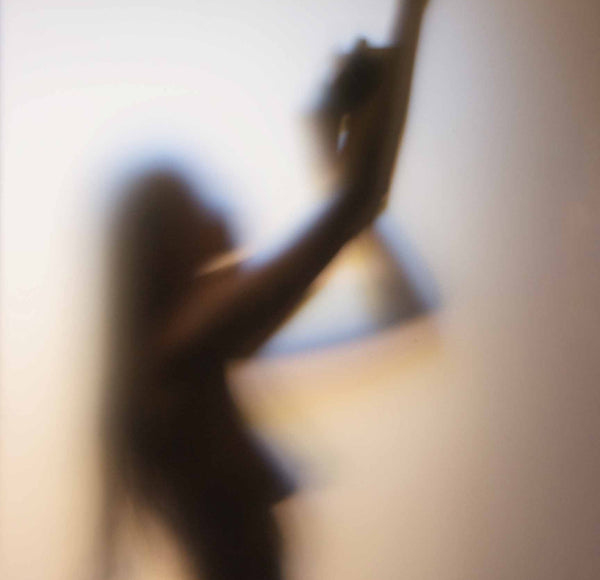Insomnia is a sleep disorder that manifests as difficulty falling asleep, staying asleep, or both. Whether it’s due to work stress, a breakup, a poor diet, or other factors, many of us struggle with insomnia from time to time. But, the good news is, it can get better.
With the right information, you can improve your sleep, achieve deeper sleep, and wake up feeling rested, rejuvenated, and ready to take on the day. So, with that in mind, let’s explore everything you need to know about how to cure insomnia and so you can start each day feeling your best self.
How Common Is Insomnia?
Up to two-thirds of adults experience intermittent insomnia. This can be caused by many things, such as stress, lifestyle, and environmental factors like noise, light, and uncomfortable temperatures.
Understanding the root cause of your sleep issues is the first step to figuring out how to cure insomnia. So, if you’re noticing a change in your sleep, take a step back and consider what else has changed in your life. Once you’ve identified the issue, you can address it with our top tips on how to treat insomnia.
What is Chronic Insomnia?
Insomnia is classed as chronic when it occurs three or more nights a week and lasts for longer than three months. Long-term insomnia can be a result of several issues, including mental disorders, physical illnesses, and medications.
Left untreated, chronic insomnia can raise your risk of high blood pressure, coronary heart disease, diabetes, and cancer. So, if you’re struggling with chronic insomnia, seek help from your physician.

Our Favorite Biohacks for How to Deal with Insomnia
This guide focuses on insomnia treatment for intermittent cases. We’ve all heard the obvious sleep hacks: avoid screens and caffeine before bed. But, what about the more holistic approaches? Let’s dive in!
Breathwork Meditation
Insomnia is often linked to stress. And, sometimes, we carry a lot of stress in our body without realizing it. If you struggle to switch off your brain and body at night, breathwork meditation could help.
Slow and controlled breathing kicks your parasympathetic nervous system into gear. This is the part of our nervous system that counterbalances the body’s sympathetic nervous system, which is responsible for the “fight or flight” response. By engaging the parasympathetic nervous system through breathwork, your body begins to relax, your heart rate and blood pressure decrease, and a feeling of calm takes over.
There are many different types of breathwork, including:
- 4-7-8 breathing technique
- Box breathing
- Alternate nasal breathing
- Progressive muscle relaxation
- Bhramari pranayama breathing (humming bee breath)

Breathwork can also help with symptoms of anxiety and depression. Check out our blog on psychedelic breathwork meditation to learn more.
Infrared Light Therapy
By powering up cells called mitochondria, light therapy encourages our body to produce the chemical energy it needs to rejuvenate. Infrared light also increases the body’s melatonin production, which is crucial for a robust circadian rhythm and a healthy sleep drive.
Using an Infrared Sauna Blanket or a Red Light Face Mask before bed can help release these chemicals and hormones. They also improve circulation and encourage muscle relaxation for a deeper and more comfortable sleep.

Take a Relaxing Bath
A hot bath helps your body reach the optimal temperature for sleep. Your body needs to cool down about 2 to 3 degrees Fahrenheit to initiate sleep. And, by having an indulgent soak in a hot bath an hour before bedtime, you encourage your body to warm up and let go of this heat.
Adding magnesium flakes to your bath with our Serotonin Soak can also help to calm your nerves, soothe your muscles, and boost serotonin which plays a crucial role in the body’s sleep/wake cycle.

Supplements and Dietary Changes
Some supplements like magnesium, melatonin, and valerian root can help encourage sleep. Or, if you’d prefer to get these from your diet, try bananas, spinach, kale, and broccoli for magnesium and pistachios, grapes, eggs, and fish for melatonin.
You don’t have to wait until the evening to feel the impact of magnesium on your sleep. In fact, you can increase your magnesium intake after a workout with our High-Dration Powder.
You can also apply our Magnesium Spray to ease sore muscles, relax the mind and body, and encourage restorative sleep.
Limit Certain Foods
We all know that caffeine and alcohol negatively impact sleep. But did you know that spicy foods, acidic, sugary, fiber-rich, and tyramine-rich foods should also be avoided later in the day?
Tyramine is an amino acid that releases natural stimulants for brain activity. It’s included in foods like tomatoes, soy sauce, and eggplant. Meanwhile, spicy foods raise your body temperature, which is the opposite of what your body needs to fall asleep.
Boost Your Beauty Sleep with the Right Insomnia Treatment
HigherDOSE is all about helping you live a healthier and happier life—and getting restorative sleep is a huge part of that. Check out our extensive collection of supplements and cutting-edge wellness tech to see how you can achieve optimal sleep and relaxation. You can also book a treatment and take a look at our recent articles about napping after exercise and getting the right amount of recovery sleep.



































